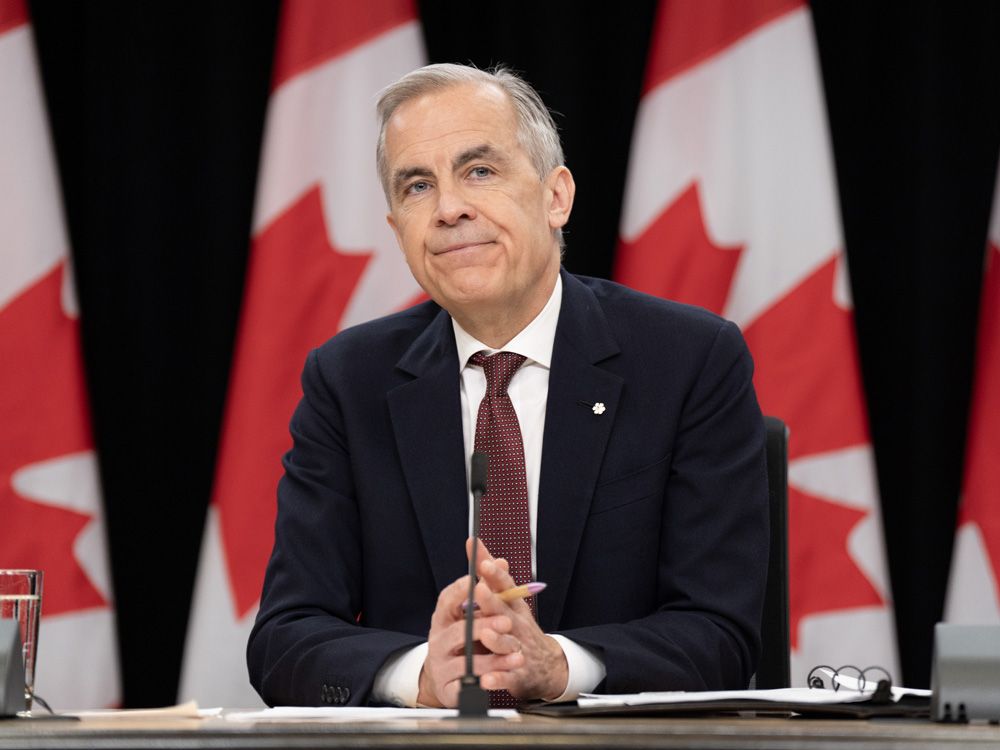
If all you’ve gotten is a hammer, all the pieces begins to seem like a nail.
That’s by no means been more true than within the realm of Canadian tax coverage, particularly below the governing Liberal Occasion of the previous 10 years. Whether or not the difficulty (the “hammer”) has concerned local weather alarmism, housing challenges, “intergenerational equity,” taxing the wealthy, digital disruption, and so forth., the instinctive political response has been predictable: tax it or tax it extra (the “nail”).
The carbon tax is the obvious instance, however the listing is lengthy: luxurious taxes; digital providers taxes; the now-abandoned capital good points inclusion charge hike; the 4 per cent enhance in tax charges for the so-called wealthy in 2016; quite a few and foolish housing tax measures (such because the
flipping tax
and the
prohibition of deductions
on short-term leases in sure situations).
All of those usually are not indicators of considerate, evidence-based policymaking. They’re signs of a deeper drawback: a authorities that views taxation much less as a device of sound financial stewardship and extra as a blunt ideological instrument for social engineering and political messaging.
The Liberals are most actually not excited about change since they need to proceed utilizing taxation coverage as a blunt political instrument.
The Liberals’
election platform
solely strengthened this concern. Moderately than committing to complete tax reform (such because the Conservatives did), they proposed to “conduct an professional overview of the company tax system primarily based on the rules of equity, transparency, simplicity, sustainability and competitiveness.”
That sentence would possibly sound good, particularly in case you have a cursory understanding of taxation coverage. However learn it once more. Are you able to inform me what it means? I actually don’t know what it means, however I by no means prefer it when “equity” and taxation coverage are utilized in the identical sentence by political events. The sentence, nevertheless, actually doesn’t promise a complete tax overview or reform.
Right here’s why.
Whole revenues
for the federal authorities had been $459.5 billion for the 2023-24 fiscal yr. Company tax revenues had been $82.5 billion, 17.9 per cent, of that complete; private tax revenues had been $217.7 billion, or 47.4 per cent; and GST revenues represented $51.4 billion, or 11.2 per cent.
Why solely deal with company tax when private tax and GST account for nearly 59 per cent of federal revenues?
Second, there are lots of areas of taxation which might be essential, however don’t straight or materially contribute to authorities revenues. The correct and environment friendly administration of the tax system — carried out by the Canada Income Company — is an instance of that. It desperately
wants consideration
and large fixes.
The charitable and non-profit sectors
want a whole overview
and a few overhaul to cope with abuses. Worldwide and nonresident taxation is one other very advanced space that wants a overview. Ditto for the effectiveness of our taxation system on dying.
Third, to solely focus a overview on the company system is much too slim. Company tax is merely a prepayment of taxes in the end borne by people — whether or not as employees, customers or buyers. A overview of 1 facet of the tax system is smart whether it is apparent that it’s a huge drawback in comparison with the opposite facets. But it surely’s not. True overview or reform should study the total scope of taxation.
Fourth, as an alternative of specializing in the rules of equity, transparency, simplicity, sustainability and competitiveness as acknowledged within the Liberal coverage platform, any overview of the tax system ought to be certain that Adam Smith’s 4 canons of tax system — as specified by 1776 in
The Wealth of Nations
— are adhered to:
- Fairness/equity: taxes ought to be proportional to an individual’s skill to pay. To be clear, the usage of the phrase “equity” within the Smithian context is rather a lot totally different than when political ideologues use it;
- Certainty: taxpayers ought to understand how a lot, when and how you can pay their taxes, with minimal discretion left to tax authorities;
- Comfort: each tax must be levied on the time or within the method during which it’s most certainly to be handy for the contributor to pay it;
- Effectivity: taxes ought to reduce compliance prices, administrative burdens and financial distortions.
Fifth, who would be the consultants that can conduct the company tax overview? Will or not it’s the identical individuals who have suggested the Liberal authorities over the previous 10 years? These individuals, notably some well-known teachers who lack sensible expertise, are ideologues who’ve vastly contributed to the mess that our tax system is. It is filled with
political tax gimmicks
that pander to a governing celebration’s voter base with little concern as as to whether or not such gimmicks contribute to good total public coverage.
The Liberals have a chance to do what their important competitor proposed: conduct broad-based tax reform. There are various within the tax group who provide recommendation as to what that reform ought to seem like, however a lot of these suggestions are too surgical. In different phrases, our revenue tax statute and administrative system are past easy fixes.
As an alternative, as economist Jack Mintz has typically acknowledged, Canada wants
“Massive Bang” tax reform
. It’s time for large pondering: new and daring concepts to assist kickstart our lagging economic system and encourage our nice entrepreneurs.
AC/DC
lit it up in Vancouver
final month with their track Again in Black — a masterclass in energy, precision and showmanship. Canada’s tax system, against this, is a cacophony of political gimmicks and missed alternatives.
If Mark Carney and the Liberals are critical about management, they need to ditch the slim company tax overview and ship the daring, broad-based reform our economic system calls for: a Massive Bang to unleash Canada’s entrepreneurial spirit and restore fiscal concord.
Kim Moody, FCPA, FCA, TEP, is the founding father of Moodys Tax/Moodys Personal Consumer, a former chair of the Canadian Tax Basis, former chair of the Society of Property Practitioners (Canada) and has held many different management positions within the Canadian tax group. He might be reached at kgcm@kimgcmoody.com and his LinkedIn profile is https://www.linkedin.com/in/kimgcmoody.
_____________________________________________________________
In case you like this story, join the FP Investor Publication.
_____________________________________________________________
Bookmark our web site and help our journalism: Don’t miss the enterprise information you could know — add financialpost.com to your bookmarks and join our newsletters right here.






